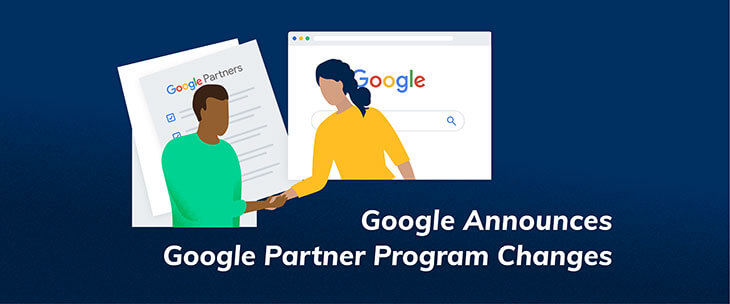From video chatting friends and family to banking to attending events online, our lives move more into the digital world every single day. While much of our online activity is innocuous, or perhaps even boring, a portion of it involves information we’d prefer to keep to ourselves. However, digital tracking tools allow advertisers to paint a pretty accurate picture of an internet user’s activity, interests and demographics. While this data makes it possible to deliver targeted and relevant advertising to potential customers that is often useful and welcomed, consumers are becoming increasingly concerned about their privacy online.
Last year, Consumer Reports commissioned a study that examined the country’s outlook on digital privacy. They found that “65% of American consumers say they are slightly or not at all confident that personal data is private.” What’s more, “96% of Americans agree that more should be done to ensure that companies protect the privacy of consumers.”
Leading tech companies like Apple, Facebook and Google are responding to these concerns by beefing up privacy protections on their respective platforms. While these changes will benefit internet users, they also come at the expense of platform advertisers, who will have reduced access to user data. So what are these changes, and how will they impact digital advertisers? Here’s a brief overview of what’s to come.
Google’s Privacy Sandbox Launches Soon
Google made waves in early 2020 by announcing it would move to eliminate third-party cookies, which are the website code snippets that allow advertisers to track user behavior online. When the company’s Privacy Sandbox initiative arrives with the Chrome 90 update this spring, browser users will be able to opt-out of data tracking the same way Safari and Firefox users can now. While this new feature will please internet users who’d prefer to browse anonymously, advertisers fear they’ll be losing a powerful revenue-generating tool.
Fortunately, the company isn’t leaving its Google Ads users high and dry. Rather than targeting individual users based on their specific internet browsing history, advertisers will target groups of people with similar interests. Google hopes this move will preserve audience viability while at the same time anonymizing individual user activity within much larger groups. These changes will likely have the largest impact on retargeting campaigns, which currently target specific users who have interacted with a website. After the changes, advertisers will retarget lookalike groups instead.
Google plans to introduce the new advertising environment in a Beta release and won’t entirely move away from cookie-based advertising for about two years. So, advertisers won’t have to make these changes overnight. Once the new ecosystem is in place, Google executives believe advertisers won’t see much difference. In a recent blog post, Google Product Manager Chetna Bindra wrote, “advertisers can expect to see at least 95% of the conversions per dollar spent when compared to cookie-based advertising.” Hopefully, Google’s move towards privacy will benefit users and advertisers alike.
Facebook Responds to Apple Privacy Changes
There are currently more than 113 million iPhone users in the United States, which accounts for about 47% of all smartphone users in the country. When you include iPads, Apple’s share of mobile device operating systems jumps to 60%. This market domination allows Apple to set a privacy agenda that other companies have no choice but to follow.
On April 26, Apple is launching its App Tracking Transparency (ATT) initiative, which requires any app that tracks data to provide iPhone owners with an opt-out prompt before they use the app. This change will have a significant impact on social apps like Facebook and Instagram that rely on user data for ad targeting. Facebook has been extremely vocal against this change, arguing that it will ultimately hurt small businesses. Nevertheless, ATT will soon be a reality, and Facebook has made changes to its advertising platform in response.
To meet Apple’s new data collection standards, Facebook introduced what it calls aggregated event measurement (AEM), which limits tracking to only eight pixel events. Advertisers can prioritize which events Facebook tracks after the advertiser verifies their domain in Business Manager. If they don’t, Facebook will prioritize whichever events have the most information. Facebook is also shrinking its attribution window from 28 days to only seven days. Facebook’s one-day click through attribution window will be the only conversion window that still reports data for users that opt out of the prompt. Advertisers with at least 30 click-based purchases over the last seven days can take additional steps to collect all opt-out user data.
The impact these changes will have on Facebook advertising is unclear. Based on information from Apple’s location tracking prompts, we’re anticipating a 50% data tracking opt-out rate, but we’re prepared for opt-out rates to be as high as 65-70%. We also predict that the reduced attribution window could impact advertiser’s return on ad spend (ROAS) data by as much as 50% and will likely force advertisers to focus on new goals such as cost per acquisition.
Strategic Partnerships Give Logical Position an Edge
Advertisers that rely on Google and Facebook to drive new business are understandably concerned by these huge changes. However, it’s important to remember that Google and Facebook both rely on advertising dollars as their primary revenue source. So they’re invested in making this new arrangement work for users and advertisers alike.
Logical Position’s formal partnerships with Google and Facebook have allowed us to have early access to many of these features while collaborating with company representatives to develop new advertising strategies. We’ll continue to make the most of these partnerships as we all adapt to a new advertising ecosystem.
Ultimately we’ll all benefit as tech companies continue to prioritize user privacy. In the meantime, our team will continue helping our clients find success in the digital world, using whatever tools are available.




